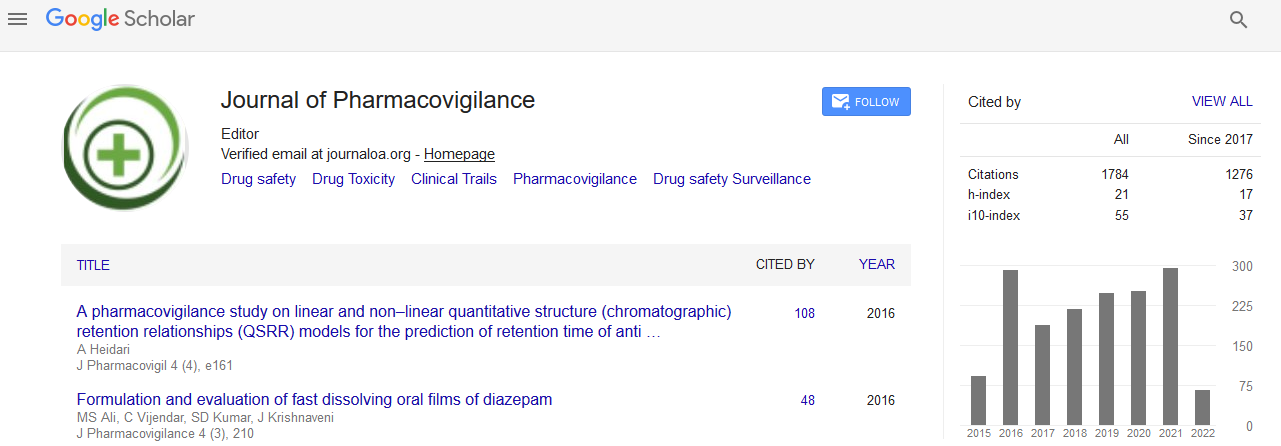Indexed In
- Open J Gate
- JournalTOCs
- The Global Impact Factor (GIF)
- RefSeek
- Hamdard University
- EBSCO A-Z
- OCLC- WorldCat
- Publons
- Euro Pub
- Google Scholar
Useful Links
Share This Page
Journal Flyer

Open Access Journals
- Agri and Aquaculture
- Biochemistry
- Bioinformatics & Systems Biology
- Business & Management
- Chemistry
- Clinical Sciences
- Engineering
- Food & Nutrition
- General Science
- Genetics & Molecular Biology
- Immunology & Microbiology
- Medical Sciences
- Neuroscience & Psychology
- Nursing & Health Care
- Pharmaceutical Sciences
Abstract
Pharmacovigilance of Oncology Biosimilars
Luis H. Camacho and Nikhil Pai
Biologicals are critical in cancer medicine. Four of the top ten biological blockbusters worldwide are oncology drugs used for therapeutic or supportive care. The global market for biologic cancer therapies approximately totalled US$ 51.2 billion in 2014 and is expected to reach US$ 66.4 billion in 2019. The patents of most of these top-selling agents will expire by the year 2020 attracting industry to develop biosimilars - agents with high similarity to their biological reference product. Furthermore, manufacturing biosimilars is more cost and time effective than developing their reference products. The cost containments derived from the biosimilars entry to the market are expected to result in considerable societal savings and financial relief to health systems globally. Led by the European Medicines Agency, and the Food and Drug Administration, several other regulatory agencies continue to develop their approval and pharmacovigilance (PV) programs for biosimilars worldwide. Maximizing the safety monitoring and reporting of adverse events (AEs) associated with biosimilars will be critical to rapidly find a place in cancer medicine. Greater efforts to educate patients and healthcare providers to report AEs as well as requesting periodical dissemination and publication of reports by sponsors will be determinant to ensure the post-marketing safety of these agents and gaining the trust of health care providers. This article reviews common and postmarketing AEs associated with the three top cancer biologicals with upcoming expiration patents, their reported AEs during post-marketing surveillance and discusses potential challenges in the PV process of cancer biosimilars.


